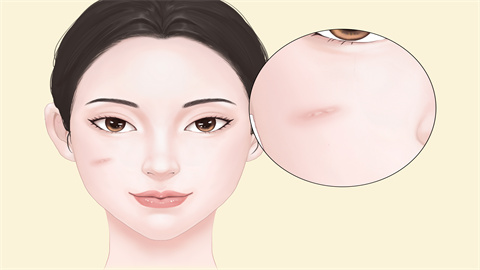What should I avoid eating to prevent scarring?
Generally, to prevent scarring, one should avoid eating spicy foods such as chili peppers, lamb, seafood, fried chicken, cakes, and should also avoid taking certain medications including ibuprofen sustained-release capsules, warfarin sodium tablets, aspirin enteric-coated tablets, dexamethasone tablets, and compound cyclophosphamide tablets. Detailed explanations are as follows:

I. Foods
1. Chili Peppers
The spicy components in chili peppers may irritate the wound, causing local vasodilation and increasing the inflammatory response, thus affecting wound healing and increasing the likelihood of scarring.
2. Lamb
Lamb is considered a "heat-provoking" food that may easily cause allergic reactions or irritation, possibly leading to redness, swelling, and itching at the wound site, which is unfavorable for wound healing and increases the risk of scarring.
3. Seafood
Seafood such as shrimp and crab are also common allergenic foods; consumption may trigger allergic reactions and impair wound healing.
4. Fried Chicken
High-fat foods like fried chicken may delay blood circulation, reduce the skin's healing capacity, and excessive intake may hinder metabolism at the wound site, impairing tissue repair.
5. Cakes
High-sugar foods such as cakes may easily cause excessive sebum secretion, leading to clogged pores, bacterial growth, and increased risk of infection, which may result in scarring.
II. Medications
1. Ibuprofen Sustained-Release Capsules
This medication belongs to non-steroidal anti-inflammatory drugs (NSAIDs), which may affect platelet function, delay blood coagulation at the wound site, increase the risk of bleeding, thereby affecting wound healing and increasing the risk of scar formation.
2. Warfarin Sodium Tablets
This is an anticoagulant drug that can affect the blood's clotting ability, increasing the risk of bleeding and hematoma at the wound site, which may lead to hypertrophic scarring.
3. Aspirin Enteric-Coated Tablets
This antiplatelet medication reduces platelet aggregation and thrombosis, but may also increase the risk of bleeding at the wound site, adversely affecting the healing process.
4. Dexamethasone Tablets
This is a corticosteroid medication; its use may suppress the immune system, affecting the wound healing process and potentially leading to the formation of hypertrophic scars.
5. Compound Cyclophosphamide Tablets
This immunosuppressant may suppress the immune system, affecting the immune response and healing process at the wound site, increasing the risk of scar formation.
In daily life, it is important to keep the wound clean and prevent infection. At the same time, consuming more protein-, vitamin-, and mineral-rich foods such as fish, eggs, vegetables, and fruits can help promote wound healing.





